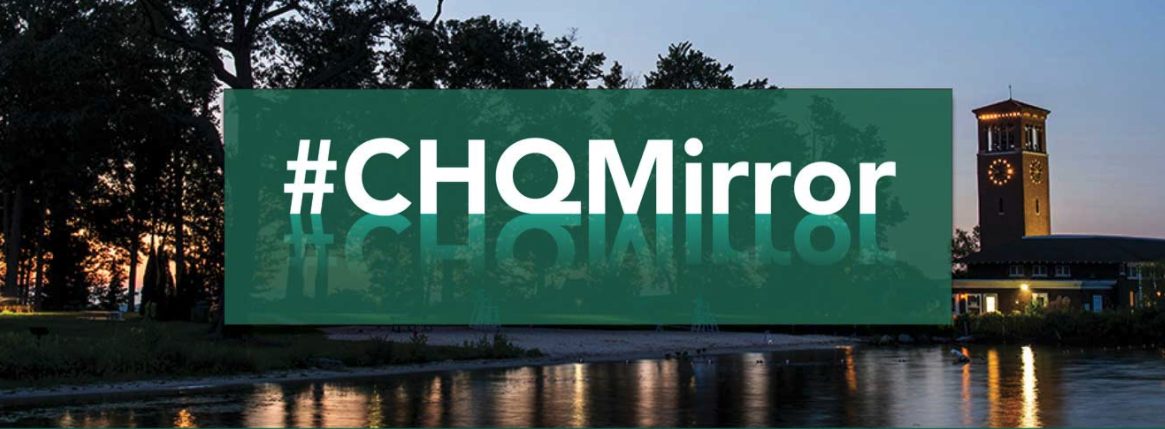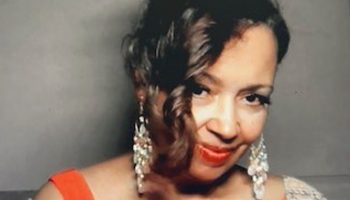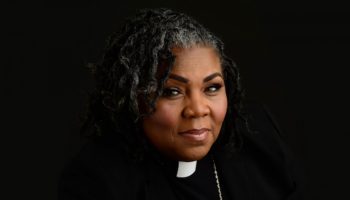On a typical summer day in Chautauqua, neighbors retreat from the sun under the covered porches of Victorian homes. There, family, friends and acquaintances talk and laugh about whatever comes to mind — nostalgic stories from the grounds, that afternoon’s lecture, or burning issues in the national news.
But summer 2020 is not a typical summer.
Springtime erupted with the COVID-19 pandemic. Businesses, schools, and institutions had to shut their doors until further notice. In May, the Chautauqua Institution Board of Trustees, nearing its summer season with no light at the end of the pandemic tunnel, voted unanimously to cancel its in-person season and instead host its programming online.
On top of it all, the United States faced a moment that would turn its already-shifting society upside-down. On May 25, 2020, an unarmed Black man named George Floyd was suffocated in the street by a Minneapolis police officer after his arrest for suspected forgery. Footage of this incident, marked with Floyd’s plea “I can’t breathe,” circulated the internet and painted the news.
The Black Lives Matter movement, a movement sparked from a 2013 Facebook post, began to dedicate its work to find justice for Floyd. People who weren’t typically interested in the BLM movement were faced with the statistics that Black people are three times more likely to be killed by police than white people. Floyd’s story was not one-of-a-kind.
Erroll B. Davis Jr., president of the African American Heritage House at Chautauqua, pointed to this phenomenon.
“When you look at the situation of the police, I think the general thinking has been that there are a few bad apples,” Davis said. “Now I think the thinking, after the George Floyd incident, is that this whole tree might be poisonous.”
Americans everywhere knew this was a trend, but the question remained: What do we do now?
Most people, after George Floyd was murdered, went inwards to themselves, in their own hearts, and their own families and their own friends groups. We thought we would follow the same path of looking inward. Look at what’s going on in your own heart, in your own head around these issues,” Rozner said. “Our mission called us to create some platform for this (conversation). If we were physically on our porches together, there would be lots of those conversations happening organically and the idea was to try to replicate that online.”
Some turned to social media, joining in on hashtags like #BlackoutTuesday in an attempt to amplify Black voices. In all 50 states, Americans took to the streets for days upon weeks of consecutive protests — Portland, at the time of this article, has surpassed 50 days of protest.
No matter the action, everyone fighting racism had to face a degree of personal reflection. What am I doing that is racist? What can I do to be actively anti-racist? What can I do to help create a more just society?
This reflection, and these conversations inspired Shannon Rozner, the Institution’s chief of staff and vice president of strategic initiatives. In her eyes, Chautauqua’s staple front-porch discussions are needed now more than ever.
“Most people, after George Floyd was murdered, went inwards to themselves, in their own hearts, and their own families and their own friends groups. We thought we would follow the same path of looking inward. Look at what’s going on in your own heart, in your own head around these issues,” Rozner said. “Our mission called us to create some platform for this (conversation). If we were physically on our porches together, there would be lots of those conversations happening organically and the idea was to try to replicate that online.”
Rozner reached out to Davis with the idea to create a dynamic, conversational platform to encourage Chautauquans to discuss racism. On July 16, they announced The Mirror Project.
The Mirror Project has a purposefully simple construction: the Institution, in collaboration with AAHH, poses prompts to the community online as a way of sparking discussion and personal reflection. Any Chautauquan who feels compelled to share their thoughts can do so through the website, or on social media.
“Hopefully, an individual may gain confidence to put their thoughts and vulnerabilities out online. They also may get comfort from seeing the thoughts and vulnerabilities of others,” Davis said. “We want a dialogue around the issue of racism and systemic racism, and we want people to understand history.”
Posts and comments will be monitored for major themes. The issues that commonly discussed or inquired on will be addressed. Two times throughout the season the Institution will welcome someone with experience on that particular issue to host a discussion with community-submitted questions. That first discussion is set for 3:30 p.m. EDT Monday, Aug. 3, and will be led by the Rev. Robert M. Franklin, former director of religion at Chautauqua Institution and senior advisor to the president and James T. and Berta R. Laney Chair in Moral Leadership at Emory University’s Candler School of Theology.
The responses to The Mirror Project will also drive what prompts are proposed. Davis and Rozner said they strived to create a democratic platform.
“People don’t just want to be talked at. People want to take what they hear and do more with it,” Rozner said. “That is universally true across the Chautauqua experience, and we’ve been hearing that for years. We are making a concerted effort across the organization to help create opportunities for people to do more with what they learn here. This is one example.”
This project was in part inspired by the “cross-cutting imperative” of decisive action on issues of inclusion, diversity, equity and accessibility (IDEA), as outlined in the Institution’s strategic plan, 150 Forward. Rozner said that in this case, diversity means more than demographic. Institution leadership wants to see diversity of ideas in the project.
“There’s a concern that we won’t get a diverse set of thoughts and opinions. We really want diversity of thought here. We want it to be a dialogue and a conversation,” Rozner said. “Sometimes people see a trend and they’re afraid to say something that is sealed outside the trendline. I don’t want people to feel that fear. I want people to feel comfortable engaging from where they are in this journey.”





